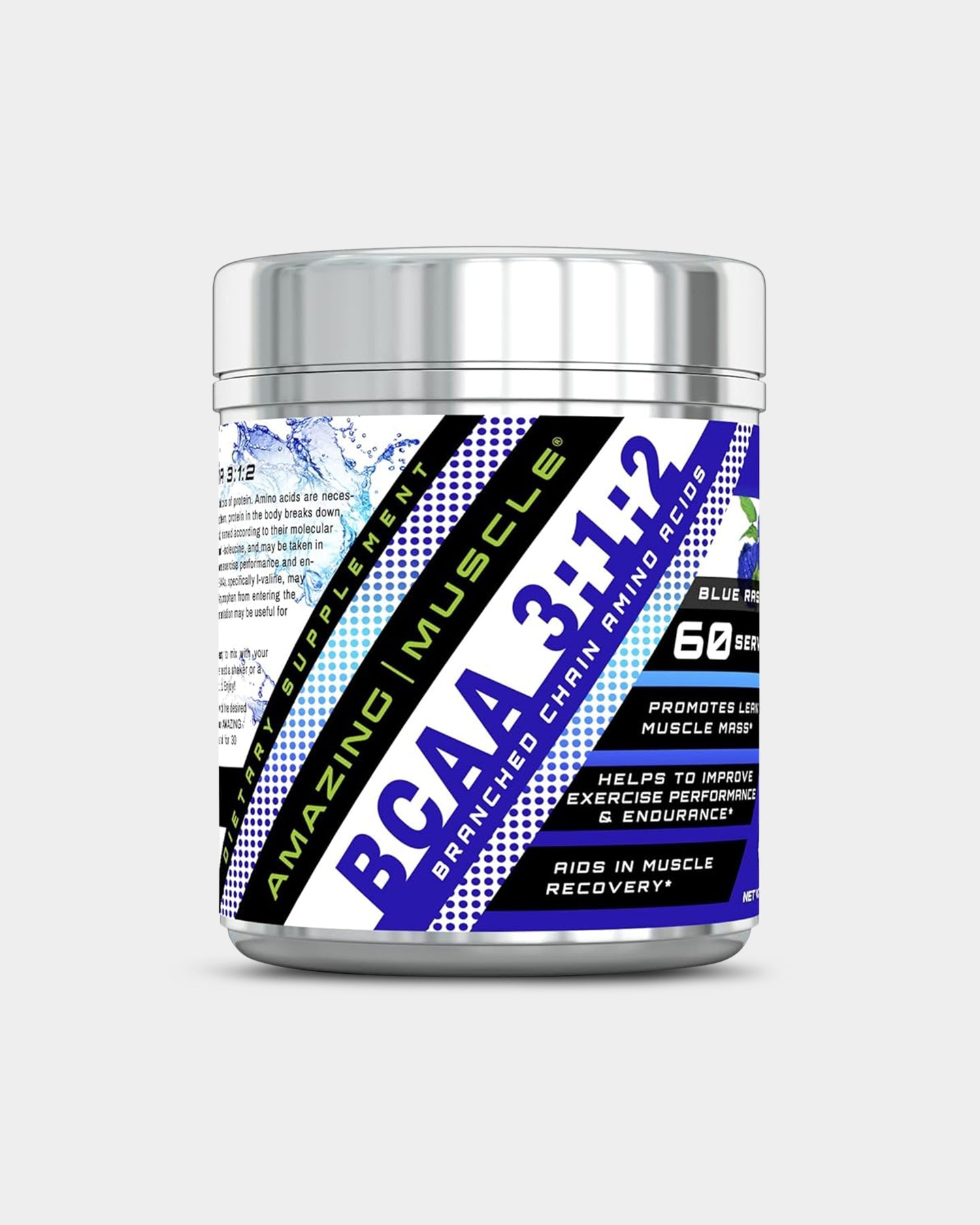Practical Ways to Use BCAA for Effective Muscle Recovery in 2025
Understanding BCAAs and Their Role in Muscle Recovery
Branched-chain amino acids (BCAAs) play a crucial role in muscle recovery and energy production during and after intense workouts. These essential amino acids—leucine, isoleucine, and valine—are vital in the formation of muscle mass and the repair of damaged muscle tissue post-exercise. Understanding their function and benefits can significantly enhance your training outcomes, especially for athletes and fitness enthusiasts aiming for optimal performance.
BCAAs are particularly important for maintaining muscle integrity during weight loss and endurance training, as they help prevent muscle breakdown while promoting protein synthesis. By incorporating BCAAs into your nutrition plan, you can effectively enhance your recovery process and improve your overall fitness results.

In this article, we’ll explore practical ways to utilize BCAAs for effective muscle recovery while outlining their benefits, recommended dosages, and how they fit into your broader nutrition strategy for achieving fitness goals.
Essential Benefits of BCAAs for Muscle Repair
Building on our understanding of BCAAs, it is important to delve deeper into their specific benefits for muscle repair. One of the main advantages is their role in reducing muscle soreness, also known as DOMS (Delayed Onset Muscle Soreness), which can be a significant barrier to maintaining a consistent training schedule.
Reducing Muscle Soreness
Numerous studies have shown that BCAAs may reduce the perception of soreness following intense workouts, thus allowing athletes to resume their training routines more quickly. This rapid recovery is essential for those on rigorous training programs, helping maintain optimal performance.
Improving Muscle Protein Synthesis
Leucine, in particular, is well-known for its ability to stimulate muscle protein synthesis (MPS), a critical process for muscle growth and repair. By incorporating BCAAs pre- and post-workout, athletes can upregulate MPS, thereby enhancing muscle recovery and promoting gains in strength and size.
Boosting Energy Production
During extended exercising sessions, BCAAs can also serve as an energy source, reducing fatigue and allowing athletes to push through intense training phases. This leads to improved endurance and performance overall, which can prove advantageous especially for endurance athletes.
How to Incorporate BCAAs into Your Fitness Routine
With these fundamental benefits understood, the next question is: how can you effectively incorporate BCAAs into your fitness routine? Adjusting your supplement intake can be simple, but ensuring it aligns with your specific fitness goals is essential for maximizing its effectiveness.
Timing Your BCAA Intake
Many fitness enthusiasts find that taking BCAAs before, during, or immediately after workouts provides the most benefits. Consuming BCAAs before training can help fuel your workout while taking them post-workout may enhance muscle recovery and replenish amino acid stores. Tailoring your intake timing according to your training schedule and intensity can make a noticeable difference.
Choosing the Right BCAA Supplement
When selecting a BCAA supplement, it’s essential to consider the ratio of the amino acids, particularly the quantity of leucine, as it plays a pivotal role in protein synthesis. High-quality formulations often feature a 2:1:1 ratio of leucine to isoleucine and valine, making them an optimal choice for athletes.
Integrating BCAAs with Other Nutrients
BCAA supplementation works best when complemented with adequate hydration and a balanced diet rich in carbohydrates and proteins. Incorporating BCAAs into your post-workout protein shakes can enhance nutrient delivery, creating a synergistic effect that promotes recovery and muscle growth.
Common Mistakes to Avoid When Using BCAAs
Building on these concepts, it’s equally important to understand the common pitfalls associated with BCAA supplementation. By avoiding these mistakes, you can fully leverage the benefits of BCAAs for muscle recovery.
Neglecting Overall Nutrition
Relying solely on BCAAs while neglecting other aspects of nutrition can impede your recovery. A comprehensive dietary approach that includes sufficient protein, vitamins, and minerals is essential for optimal performance and muscle repair.
Ignoring Dosage Recommendations
Taking an incorrect dosage of BCAAs can likewise hinder your recovery efforts. It’s advisable to stick to recommended dosages, typically around 5-15 grams per day, depending on your body weight and training intensity. Overconsumption may lead to unnecessary expenses without added benefit.
Failing to Hydrate
Hydration plays a crucial role in the recovery process. BCAAs can be dehydrating, especially if taken in large amounts; thus, ensuring you stay adequately hydrated will enhance their effectiveness and support recovery.
Advanced BCAA Strategies for Optimal Performance
Transitioning from basic knowledge to advanced strategies involves understanding how to optimize BCAA use further. By utilizing different techniques and methodologies, you can elevate your recovery game to new heights.
Combining BCAAs with Other Amino Acids
Combining BCAAs with other amino acids or supplements like glutamine can enhance recovery and muscle repair further. Glutamine is known to support gastrointestinal health and immune function, which is vital during intense periods of training.
Utilizing BCAAs in Meal Planning
Mentally incorporating BCAAs into your meal plans, especially around training time, ensures consistency. Pre-planning meals that include BCAAs, such as smoothies or specialized snacks, can streamline the process of including them in your diet.
Monitoring your Training and Recovery
Finally, keeping a close watch on your recovery patterns and adjusting your BCAA intake accordingly can lead to more precise and effective training outcomes. Utilizing apps or journals to track your workouts, fatigue levels, and recovery can provide invaluable insights.
Real-life Success Stories: Benefits of BCAA Supplementation
Reviewing real-life testimonials from athletes can provide further motivation to incorporate BCAAs in training. Many athletes report significant improvements in recovery times and enhanced performance levels post-supplementation.
Athlete Testimonials
In various case studies, athletes have highlighted how BCAA supplementation helped them reduce muscle soreness and maintain workout intensity throughout their training seasons. For instance, some competitive bodybuilders noted dramatic improvements in their recovery times and lifted weights after incorporating BCAAs into their diet.
Science Backing BCAA Effectiveness
Scientific research further supports these claims, with numerous studies demonstrating the effectiveness of BCAAs in optimizing muscle recovery and enhancing overall athletic performance. The connection between BCAAs and improved post-exercise recovery has been a focal point in sports nutrition research for years.
Community Impact
The broader fitness community has also placed a strong emphasis on BCAAs, leading to an increased availability of high-quality products tailored for various fitness levels. Choosing the right products can make a significant difference in achieving successful fitness outcomes.

Conclusion: Key Takeaways for Using BCAAs Effectively
To conclude, successfully leveraging BCAAs for muscle recovery requires understanding their benefits, timing their consumption, and avoiding common pitfalls. Adopting BCAA supplementation can significantly enhance your training and provide ample support for muscle repair, energy production, and recovery.
By integrating BCAAs into your fitness routine wisely, maintaining hydration, and planning meals, you set yourself up for success in reaching your fitness goals in 2025. Embrace these practices and witness your athletic performance flourish in the process.
FAQs About BCAAs
What are BCAAs and how do they work?
BCAAs, or branched-chain amino acids, are essential nutrients that the body obtains from proteins. They play a role in muscle repair and energy production during exercising.
When is the best time to take BCAAs?
It’s recommended to take BCAAs before, during, or after workouts for their maximum benefits in recovery and energy.
Can BCAAs aid in weight loss?
BCAAs can assist in preserving muscle mass during weight loss, promoting fat burning and contributing to overall body composition goals.
Are there any side effects of BCAAs?
When consumed as recommended, BCAAs are generally safe, but excessive intake may lead to gastrointestinal discomfort or dehydration.
How do BCAAs fit into a broader nutrition plan?
Integrating BCAAs alongside a balanced diet rich in proteins, carbohydrates, and healthy fats ensures optimal performance and recovery.
